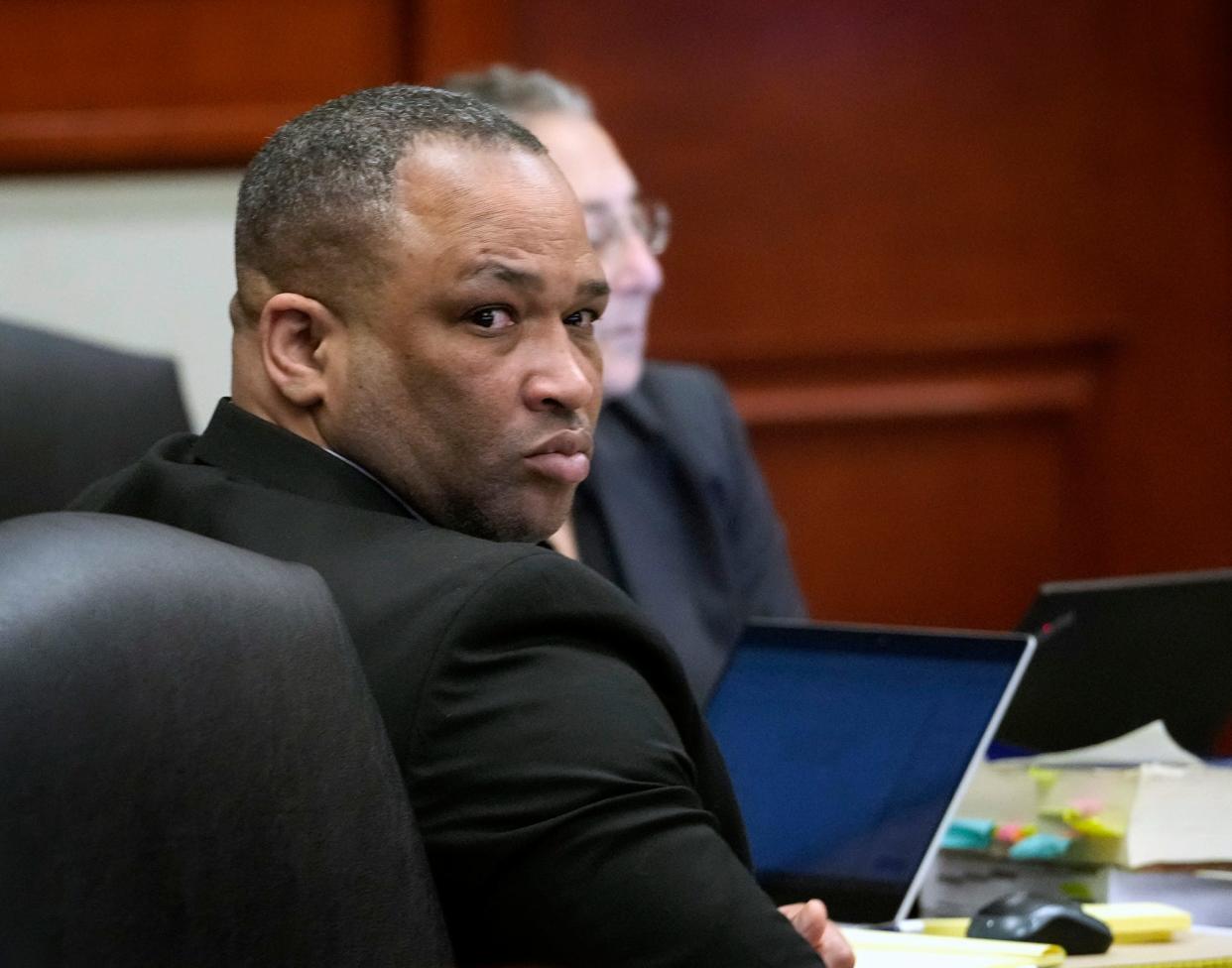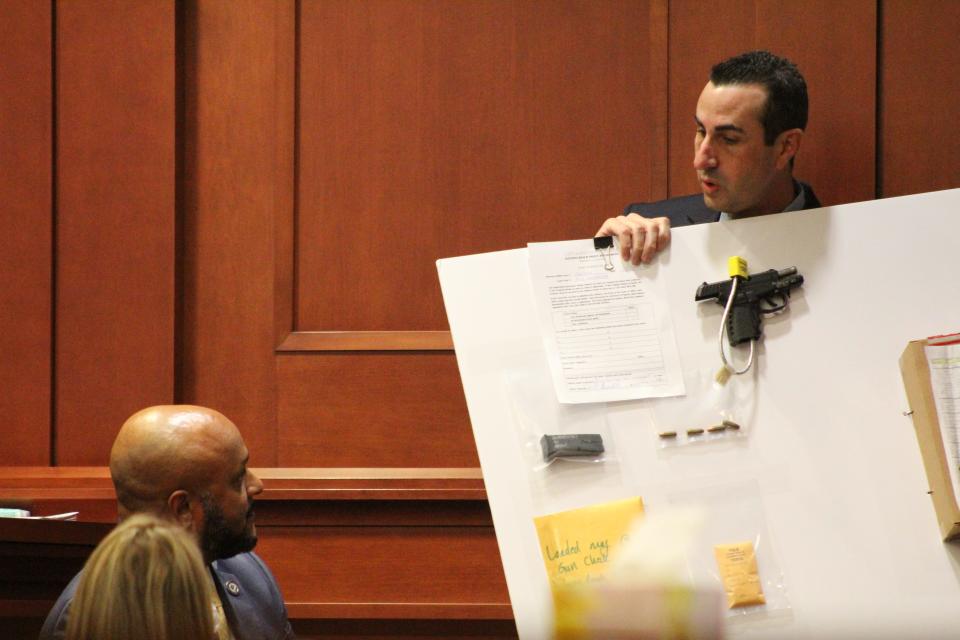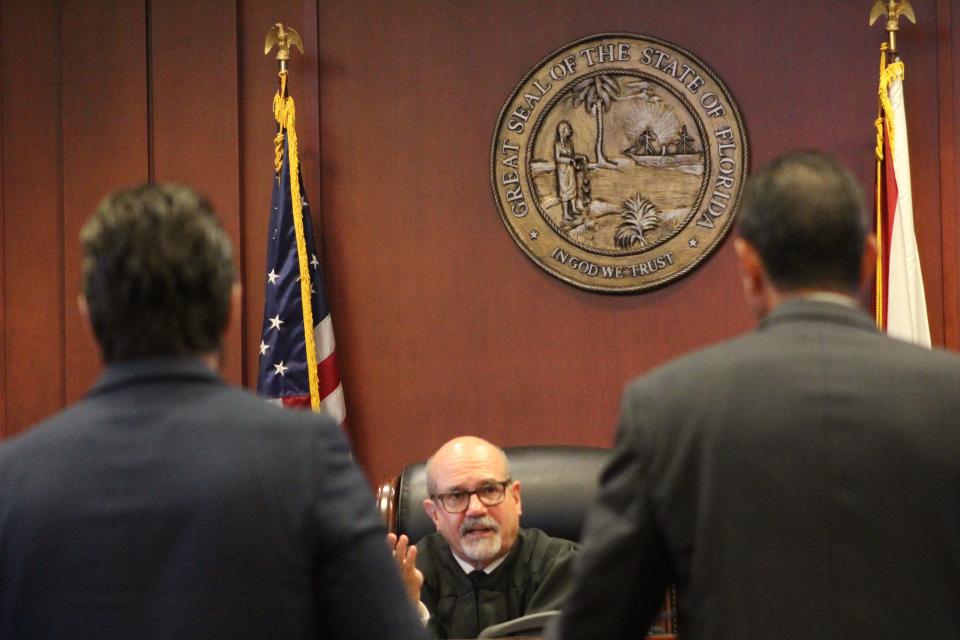Marcus Pinckney spared death sentence, will serve life in prison

A jury spared convicted killer Marcus Pinckney from a possible death sentence and instead he will spend the rest of his life in prison.
The jury convicted the 44-year-old Pinckney on Dec. 7 of first-degree murder with a firearm in the killing of Tracy Height, 57. The jury also found Pinckney guilty of two counts of attempted first-degree murder with a firearm in the shooting of Height’s son, 27-year-old Trevon Height, and a third man named Robert Singleton. Pinckney was also convicted of kidnapping with a firearm.
In the penalty phase, jurors had to decide whether to recommend to Circuit Judge James Clayton that Pinckney be sentenced to death on the first-degree murder conviction. All 12 jurors must recommend death for a judge to have that option. If the vote is not unanimous, Pinckney must be sentenced to life in prison without the possibility of parole.
Jurors returned a recommendation of life on Thursday afternoon. That meant that Clayton was obligated to sentence Pinckney to the mandatory life in prison without parole.
Pinckney was a drug dealer who said the other three men were ripping him off. On the morning of July 19, 2018, Pinckney kidnapped his girlfriend, Christy Armstrong, of Daytona Beach, tied and gagged her and brought her along to a violent confrontation.
A security video shown during the trial and again by prosecutors on Thursday showed a car driving up to the Sun Plaza Motel, 1011 S. Ridgewood Ave. A man approached the driver’s side door and there were muzzle flashes as Pinckney shot Tracy Height, and then walked away from the car and shot the two other men, Trevon Height and Singleton. As he walked back to the car, Pinckney fired again at Trevon Height and Singleton.
Man testifies about shooting'He shot my dad in the face': Man testifies during accused drug dealer's death-penalty trial
GuiltyDaytona Beach man convicted of first-degree murder, sentence deliberation begins Monday
Penalty Phase BeginsJury begins hearing evidence on whether convicted killer deserves death sentence

Assistant State Attorney Jason Lewis during his closing argument in the death penalty case told jurors that PInckney had planned all day for the killing and then kidnapped his girlfriend, threatening to kill her and then killing one man and attempting to kill two other men.
Lewis listed the aggravators for jurors. The first one was that Pinckney killed the man while engaged in another serious crime, the kidnapping of his girlfriend.
Aggravators are used to attest to the severity of a crime.
Lewis also said another aggravator was that the killing was done while Pinckney was engaged in contemporaneous crimes of trying to kill the other two men. And another factor to support the second aggravator was that Pinckey shot Ricky White in 2004. White testified earlier in the trial that he was hit by buckshot, blinding him in his right eye.

Lewis said that he believed what pushed Pinckney's crime over the top into a death penalty case was that Pinckney had already shot a man, White, before shooting the other three. And Lewis said Pinckney used a similar ruse. Pinckney waited with a shotgun as he tried to lure White to him, just like he lured the three men to the car in the motel parking lot before opening fire.
Lewis said a third aggravator was that the killing was cold, calculated and premeditated. He said Pinckney had been planning all day to kill the three men. He said Pinckney bought bullets at Walmart and later complained the ammunition was not the right type. He told his girlfriend he was going to kill them.
Pinckney was defended by attorneys Lenamon, Jessica Manuele and Joyce Brenner, and the defense objected a number of times to Lewis' closing arguments, with the judge overruling most objections. Some objections resulted in a sidebar.

In her closing, Manuele argued there was no evidence to support the heightened premeditation which is part of the cold calculated and premeditated aggravator. She recalled that Armstrong said Pinckney was acting erratic.
She reminded jurors of a recorded phone call after Pinckney was arrested between him and Armstrong. She said Pinckney was crying on the phone.
“He realizes he has done something so stupid and wrong," Manuele said. "That is not the kind of person that is not worthy of life. We cannot bring Tracy back but all life is valuable.”
Manuele recalled Pinckney’s interview with police.
“He tells the police that things got out of control,” she said.
And she presented mitigators for jurors, including violence in the family home when Pinckney was a child, including his mother throwing a pot of boiling water on her husband. Another time, his mother beat his sister to the point that she was taken to a hospital, Manuele said.
She said Pinckney’s mother had used drugs when he was a child.
Manuele reminded jurors that Pinckney had been sent to the Arthur G. Dozier School for Boys, a notorious and now-closed state school in Marianna. She said Pinckney was traumatized at the school, where there was racism and daily fights.
Later, Pinckney would go to prison. Once released he tried to turn his life around by attending college but it was too much of a challenge for a first-generation college student who also spent time in prison, the lawyer said.
She added that Pinckney was using drugs on the day of the killing.
Manuele asked jurors to allow Pinckney to continue to live so that he would be available from prison for his children. Pinckney would never be released, she said.
“Nobody is justifying the murder of Tracy Height,” Manuele said. “(Pinkney) will be punished. He will spend the rest of his life in prison.”
This article originally appeared on The Daytona Beach News-Journal: Killer spared possible death sentence, gets life in prison

